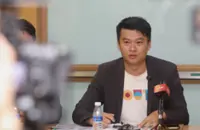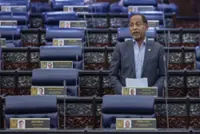PUTRAJAYA: There will be no more free education in top schools for children of the elites, says the Prime Minister.
The rich who can afford to pay, said Datuk Seri Anwar Ibrahim, will have to do so when Budget 2025 is announced.
“As far as I understand, the elite groups such as senior civil servants, political and top business leaders, who are sending their children to the best schools funded by the government are enjoying the benefits and this is unreasonable. (It is) unfair.
“If the children of the wealthy are sent to the Faculty of Engineering (for example), whether they are Malays, Chinese, Iban or Kadazan, they should pay. By doing this, we can cover the shortfall. Otherwise, these subsidies will be enjoyed by the wealthy. The funds should (instead) be used to help the poor more.
“We must be truly fair to those in need, especially those vulnerable groups, children with autism for instance, who should be given the focus,” said Anwar, who is also the Finance Minister.
Speaking at the National Symposium to End Poverty 2024 at Putrajaya International Convention Centre (PICC) yesterday, he said the move to make the wealthy pay for education, though unpopular, is necessary.
Anwar had indicated that Budget 2025, the third under the Unity Government, would see a reassessment of subsidy allocations, including in the education sector, that have benefited the ultra-rich and the wealthy.
He said the government would ensure that the welfare of the vulnerable groups and those who are truly in need continues to be given the proper attention in the Budget 2025 which is expected to be tabled in Parliament on Oct 18.
“How do we do it? By ensuring funds are distributed. How can the funds be distributed?
“The form of leakage, including children of the wealthiest groups who are attending science secondary schools and (those) heavily subsidised by the government, should be stopped.
“I’m saying this as an early indication before announcing the Budget next month,” he said, adding that the government must stop subsidising the ultra rich and foreigners and use the money to help the people and those in need instead.
“These foreigners do not pay taxes and what they earn will be sent back to their home countries. But we still give them subsidies, including electricity subsidies, for many many years. So, we have to look at the issue more comprehensively. How do we get revenue and at the same time how do we distribute it,” he added.
At the same time, Anwar also wants to review the management of public funds and the approaches used by government agencies to eradicate poverty.
Citing an example, he said there were instances where 80% of government funds were allocated for management costs, leaving only 20% channelled to people in need.
He added that agencies were set up to help the vulnerable and the needy, but most of their allocation was spent on their management and other purposes.
“Is it reasonable for an agency formed to help the poor pay such high salaries and allowances to their management?
“Some are travelling first-class all over the world. This matter needs to be discussed,” he said.
Anwar also highlighted that Malaysia was one of the top countries that had allocated considerable funds to eradicate poverty.
“How much leakage has occurred? How much money was spent on management itself? Can such a thing be avoided?” asked Anwar.
He also called for stricter monitoring of government allocation distributed to such agencies to ensure that there are no leakages.





